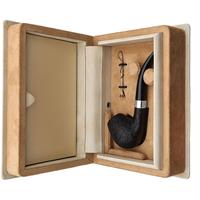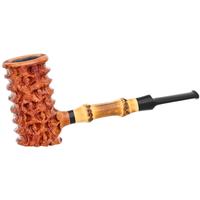The debate is not over, as far as I am concerned. Just having people say, yes there is calculating involved and specific principles and laws of physics, does NOT prove anything. This is still in the realm of opinion. Until someone explains a little better what the calculations are in determining draft hole diameter to length, and what the predetermined goal is. Flow, pressure, resistance?
I use physics when putting in a fence post, using the hose to wash my car, the plumber uses all of this when plumbing my house. But, does that make me an engineer. With setting a fence post, you have to use leverage fulcrum to make sure that the hole is wide enough to whatever weight the concrete supplies, but I am not calculating this. I know that two feet deep is sufficient, more than. I have to use the same laws and principles when removing a bolt from an engine, but instead of calculating the amount of pressure I need to apply to the wrench, I just push or pull till it budges. Also, the bernoulli law is effecting my washing may car with the hose, but I am not calculating anything.
I am not saying that there are no pipemakers using math and laws to equate diameters to length ratios for whatever their predetermined goal is. I am just saying that out of all of the influential pipemakers that I have talked with at the Briary and all of the pipes that I have seen by makers seem to all use a predetermined diameter to drill the shank and the stem. Of course there is more to it all than that. But, if the length of the draft is variable from pipe to pipe, and the length of stem is variable, if the pipemaker is truly using math to get some goal, then the diameter would be varied. Otherwise, they are just doing similar to me setting a pole in the ground for a fence. And, there is nothing wrong with that. But, using the term "engineering" means that they are calculating to get a desired effect.
And, maybe some pipemakers do this. I don't doubt it. I am not posting to be an asshole, or to just argue. I truly enjoy this type of stuff, just as I would enjoy listening to engineers talk about balancing the new exhaust systm to the HP of the engine, or discussing calculating horsepower in general. Just as a car nut would enjoy this, pipe smokers would (I would think by the OP) enjoy listening to these engineering calculations being made. What is their goal? Is it flow, resistance, what is it? Enquiring minds....
Now, we can say that sure physics is involved. I don't doubt that. We can just calling people names for not just taking the experts at their word. But, ultimately, the question is not answered.
Pipes are amazing things. Simple, yet amazing. But, I know that there is much consideration put into these tools. I am not putting down pipemakers. I am just asking what is the difference between an engineered pipe to one built on tradition and attention to detail? What is the calculations being made, and could you explain how the calculations differ from a long pipe to a nosewarmer, and show me the evidence.
Sure, sure, discount the questioner as disingenuous, but before we all take your word on it, explain to us how engineering affects one pipe design differently from another.















 :
: